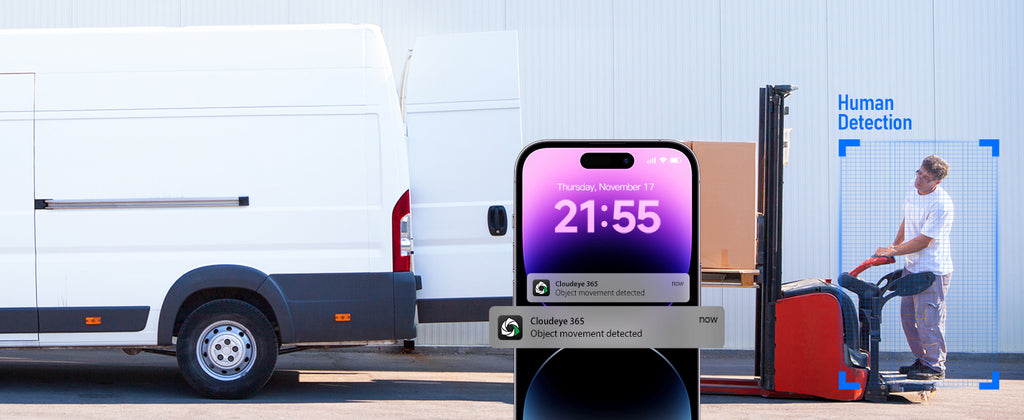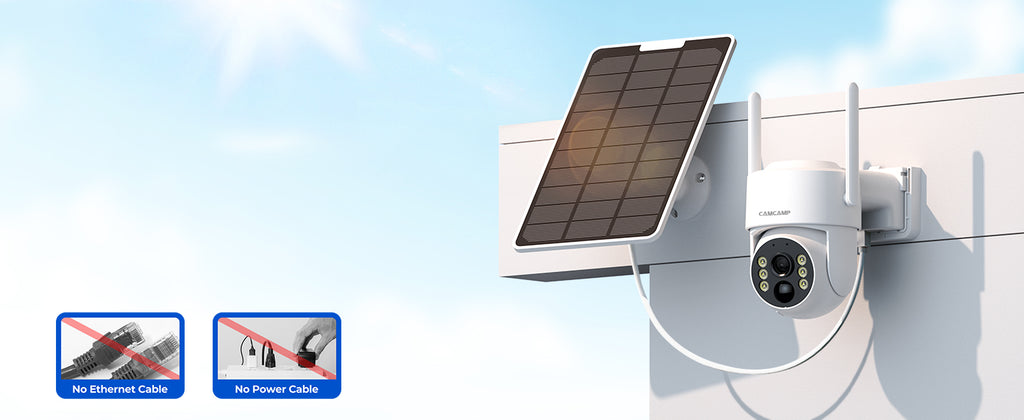In today's digitized world, security has become more and more prominent, and installing cameras has become the preferred way for many people to maintain security. However, in some areas, especially in remote areas or emerging countries, there is insufficient or no network coverage at all, which poses a huge challenge for the use of surveillance devices. But don't worry, cellular security cameras have been created to provide you with the perfect solution to this challenge.
What is a Cellular Security Camera?
Cellular security cameras are mobile web-based surveillance devices that do not rely on a traditional internet connection. Compared to traditional webcams, cellular cameras connect to the mobile network via a SIM card, which enables video transmission in areas without network coverage.

Benefits of Cellular Security Cameras
Cellular security cameras offer unique advantages and features in addressing security needs in areas without network coverage. Compared to traditional webcams, they are not limited by the availability of an internet connection. Their independent operation, mobility, reliability, and adaptability make them ideal for security monitoring in a variety of scenarios, providing users with wider and more convenient security coverage.
- Mobile Network-based: Cellular security cameras connect to the mobile network via a SIM card, rather than relying on a traditional Internet connection. This mobile network-based connection allows it to operate stably in areas without a fixed network, providing users with a wider range of applications.
- Independent Operation: Since cellular cameras do not need to be connected to a local network or the Internet, they can operate independently of outside network conditions. This means that users can be in places without network coverage, such as remote areas or on ships at sea, and still be able to perform security monitoring and remote access.
- Mobility: Since cellular security cameras are not limited to a fixed network connection, they offer greater mobility. Users can set up the camera in the area they need to monitor anytime, anywhere without having to worry about network connectivity. This makes cellular cameras ideal for security monitoring in temporary or mobile locations, such as construction sites, camper vans, moving vehicles, and more.
- Reliability: Cellular security cameras use a mobile network for data transmission, which typically provides greater stability and reliability. Compared with traditional Wi-Fi connections, mobile networks have wider coverage and more stable signals, which can ensure the continuous operation of the surveillance system and the stability of data transmission.
- Adaptability: Cellular security cameras are suitable for a variety of environments and occasions, both indoors and outdoors, and can effectively meet the needs of security monitoring. Whether monitoring construction sites, farms, boats, vacation homes, or wild ecological environments, cellular cameras can provide high-quality surveillance services.

Disadvantages of Cellular Security Cameras
When choosing a cellular security camera, in addition to focusing on its convenience, you need to fully consider its possible disadvantages and make a reasonable decision based on the actual needs.
- High Cost: Cellular security cameras are usually more expensive compared to traditional network cameras. In addition to the cost of the device itself, you also need to pay additional mobile network data charges, which increases the cost of use to a certain extent.
- Signal Stability: Cellular security cameras rely on mobile network signals for data transmission, so in areas with poor signal coverage or unstable network environments, problems such as interrupted connections or blurred surveillance images may occur.
- Data Traffic Restrictions: Using cellular networks to transmit data may be affected by data traffic restrictions. Some cellular network service providers may impose data transmission restrictions, resulting in limitations on users' ability to view live video or store recordings.
- Battery Life: Many cellular security cameras are battery-powered and may have limited battery life. Especially under frequent use or harsh environments, batteries may drain faster and need to be replaced or recharged regularly.
- Varying Quality: Various brands and models of cellular security cameras exist in the market, with varying quality and stability. Some low-quality cameras may have problems such as unclear picture quality and unstable connection, affecting the user's surveillance experience.

Where to Install Cellular Security Cameras
The flexibility of cellular security cameras makes them suitable for a variety of different locations and environments. Here are some common places where cellular security cameras can be installed:
- Residential Areas: including residential buildings, villas, apartments, and other residential areas, cellular security cameras can be used to monitor entrances, garages, backyards, and other areas around the house to enhance the security of the residents.
- Commercial Areas: such as stores, restaurants, offices, and other commercial areas, cellular security cameras can be used to monitor the store's merchandise, employee activities, as well as entrances and exits, and other key areas, to help businessmen to improve security and monitoring efficiency.
- Industrial Areas: such as factories, warehouses, construction sites, and other industrial areas, cellular security cameras can be used to monitor important equipment, material stacking areas, and the security of the site perimeter, to improve the safety and management efficiency of the workplace.
- Agricultural Field: Including farmland, pasture, fishery, and other agricultural areas, cellular security cameras can be used to monitor crops, livestock, fishery facilities, etc., to help farmers improve the efficiency of agricultural production and safety precautions.
- Traffic Places: such as parking lots, stations, airports, and other traffic places, cellular security cameras can be used to monitor the activities of vehicles and pedestrians, vehicle parking and traffic order, etc., to improve the efficiency and safety of traffic management.
- Public Places: such as parks, squares, attractions, and other public places, cellular security cameras can be used to monitor the activities of tourists, the use of public facilities and the handling of emergencies, etc., to maintain public order and safety.
Summary
With its unique mobile network connection, the cellular security camera provides an effective security monitoring solution in addressing areas with insufficient network coverage. Compared to traditional Internet cameras, cellular security cameras connect to the mobile network via a SIM card, enabling users to have real-time monitoring and remote access even in places where there is no network. However, cellular security cameras have some limitations, including higher costs, dependence on mobile network signals, data traffic limitations, battery life, and uncertainty about camera quality. When choosing to use cellular security cameras, users need to weigh the advantages and disadvantages according to their specific needs and ensure that they are purchasing a reliable quality device.
